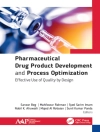This book focuses on the prophylactic potential of diet-derived factors in primary prevention of cancer. It is written by a group of highly reputed experts in the area of dietary agents and cancer chemoprevention. The translational potential of dietary factors from epidemiological, laboratory and clinical studies as prevention strategy in normal and risk populations is highlighted. The work presents options of routine inclusion of specific dietary regimens for prevention as well as therapeutic strategy for better management through adjuvant interventions in cancer treatment.
表中的内容
i. Foreword.- ii. Preface.- Commentary (Translational insights into the role of dietary agents in cancer chemoprevention: Lets walk the talk)-Expert opinion.- iii. Preliminary chapter titles:.- 1. Modulation of key signaling pathways in cancer cells by dietary factors.- 2. Influence of neuropsychological social stress in cancer progression and neutralization by GABA.- 3. Targeted therapy of prostate cancer with nutraceutical loaded nanoparticles.- 4. Ascorbic acid in cancer chemoprevention: Laboratory and clinical evidences.- 5. Pharmacological potential of black raspberry-derived anthocyanins against colon cancer.- 6. Mechanisms and therapeutic implications of dietary agents against breast cancer.- 7. Novel perspectives of curcumin and its clinical significance against cancer.- 8. Multi-targeted therapy of cancer by resveratrol and its novel analogues .- 9. Dietary inhibitors of histone deacetylase: Implication in cancer therapeutics.- 10. Cancer multi-drug resistance : sensitization by natural products & dietary agents.- iv. Innovative dietary approaches for cancer management.- 1. Fighting cancer with ketogenic diet.- 2. Probiotics in diet as adjunctive therapy to anticancer treatment.
关于作者
Mohammad Fahad Ullah is Assistant Professor of biochemistry at the Faculty of Applied Medical Sciences and a Research scientist at Prince Fahd Research Centre, University of Tabuk, Saudi Arabia. He received his academic degrees in biochemistry from Aligarh Muslim University, India, followed by studies on cancer cell signaling in cellular & animal models of lung and pancreatic cancer at Experimental Oncology laboratory, Department of Biomedical & Diagnostic Sciences, University of Tennessee, USA. His research interest is in the field of novel plant- or diet-derived chemopreventive compounds and the assessment of their mechanism of action and translational potential. He is member of the editorial / reviewer board of a number of scientific journals. Aamir Ahmad is a Research Scientist at the Wayne State University, Dpt. of Pathology, and Barbara Ann Karmanos Cancer Institute, Detroit, MI. His research interests include elucidating novel targets for therapy in aggressive breast cancers with special focus on key signaling pathways and micro RNAs-mediated regulation of metastases and drug-resistance. Dr. Ahmad has authored close to 150 scientific publications and also serves as an academic editor for the journal PLOS One.












